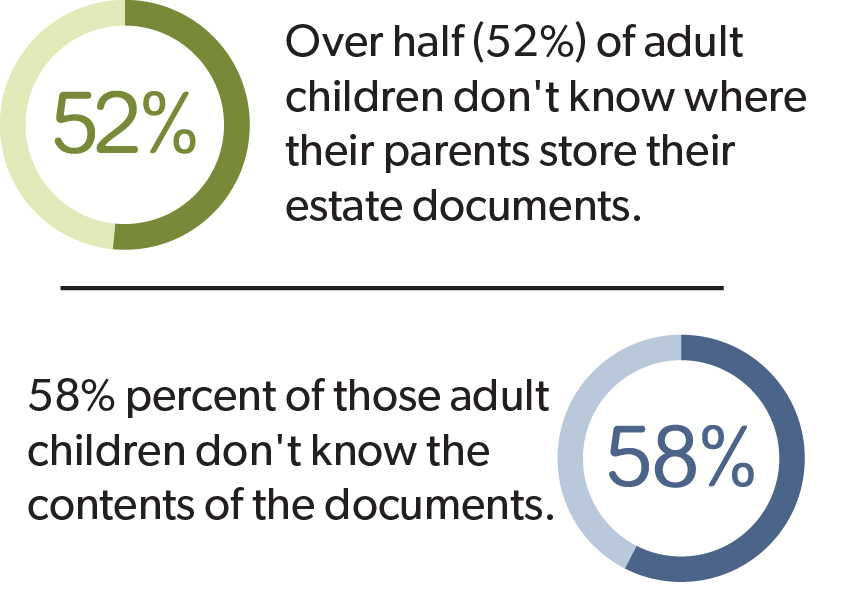After initially finalizing their estate planning documents, including a will or a trust, many people file away their estate plan, assuming the work is done forever. These essential estate planning documents protect your assets and ensure your wishes are fulfilled after your death, so it would seem logical that they should not need regular updating. However, life changes, legal updates, and changing personal situations often require regular estate plan reviews and revisions.
"An outdated estate plan can lead to unintended consequences," said Beth Kmiec, JD, Director of Fiduciary Services at First Business Bank. "These might include inaccurate beneficiary designations, not including large assets in the plan, missed tax minimization opportunities, or unnecessary delays in probate."
Kmiec, who specializes in helping clients achieve their trust and estate planning goals, emphasizes the importance of proactive estate plan reviews. "Your estate plan should change as your life does," she said. "Whether it's been a few years or you've experienced significant life changes, it's worth performing an estate plan review with your attorney to update it."
This article explores the top 10 reasons to review your estate plan, regardless of your age or stage in life.
10 Reasons To Review Your Estate Plan
1. Shifting Family Structure
Each year in the United States, about 2 million weddings happen, about 600,000 divorces, and more than 3 million babies are born. Review your estate plan if you experience:
 Marriage or divorce
Marriage or divorce- Birth or adoption of a child
- Death of a family member
- Children reaching adulthood
- Changes in relationships with beneficiaries
"Family dynamics can significantly impact your estate plan," Kmiec said. "For instance, if you've recently married or had a child, your estate plan may need to change to include them. Similarly, as your children transition to adulthood, you may need to revisit guardianship provisions and how assets are distributed."
2. Reassessing After Financial Changes
Shifts in your financial situation should prompt an estate plan review. Examples can include:
- Receiving an inheritance
- Experiencing job loss or career change
- Selling or acquiring significant assets (e.g., real estate, businesses)
- Substantial market gains or losses in your investment portfolio
- Winning the lottery or a lawsuit
- Taking on or paying off significant debt
"Any major change in your financial status, whether positive or negative, warrants reviewing estate planning documents ," advised Kmiec. "These changes can affect your tax situation, affect your ability to provide for beneficiaries, or create new opportunities for wealth transfer and charitable giving."
3. Navigating Business Ownership Changes
Changes in business ownership can significantly impact your estate plan and should prompt an estate plan review. Consider reassessing estate planning documents if you:
- Sell all or part of your business
- Acquire a new business or expand your existing one
- Implement a business succession plan
- Take on new business partners
- Convert your business structure (e.g., from sole proprietorship to LLC or corporation)
"Business ownership changes can have far-reaching effects on your personal wealth and estate," Kmiec said. "Selling your business might require updating beneficiary designations or revising wealth transfer strategies. Similarly, implementing a succession plan could involve integrating new wills and trusts or other estate planning tools to ensure a smooth transition."
4. Preparing for Retirement Transitions
As you near retirement, you should review your estate plan to ensure it aligns with your changing lifestyle and financial situation. Consider an estate plan review when you:
- Start planning for retirement
- Reach key age milestones (e.g., 59½, 65, 73)
- Begin taking required minimum distributions from retirement accounts
- Decide to downsize or relocate
- Contemplate long-term care needs
"Approaching retirement, you might need to adjust how your assets are distributed, reconsider your powers of attorney (POA), or incorporate new strategies for minimizing taxes on your retirement income,” Kmiec said.
5. Adapting To Changing Tax And Gift Laws
Tax and gift laws, which can significantly affect your estate plan, often change and are beyond your control. Review your estate plan when:
- New tax legislation comes into effect
- Estate tax exemption limits change
- Gift tax exclusion amounts are adjusted
- New tax-advantaged savings options become available
- State-specific estate or inheritance tax laws are modified
"Legislative changes can profoundly affect estate plans," Kmiec said. "Shifts in estate tax exemptions might require adjusting your wealth transfer strategies. New laws might create opportunities for tax-efficient giving or asset protection that weren't previously available."
6. Adjusting Wealth And Charitable Giving Plans
As your personal financial situation changes and your philanthropic interests develop, reviewing your estate planning documents to ensure they reflect your current goals is important. Consider an estate plan review when:
- Your wealth accumulation strategies change
- You develop new philanthropic interests
- You want to establish or modify a charitable trust
- Your capacity for charitable giving increases or decreases
- You're considering setting up a family foundation
"Regular estate plan reviews allow you to incorporate new giving strategies, such as donor-advised funds or charitable remainder trusts, that can benefit both your chosen causes and your overall estate plan," Kmiec said.
7. Updating Powers Of Attorney (POA) or Advance Directives
Changing family and personal relationships often trigger estate plan reviews and may require you to want or need to update your POA and advance directives. Consider reviewing your estate plan when:
 Your designated agents' situations change (e.g., they move away, become ill, or pass away)
Your designated agents' situations change (e.g., they move away, become ill, or pass away)- Your health status changes
- Your preferences for medical treatment evolve
- You want to modify the powers granted to your agents
- State laws that govern these documents change
"Powers of attorney and advance directives are vital components of your estate plan," Kmiec said. "They ensure your wishes are respected if you become incapacitated. Regular estate plan reviews help confirm that your chosen representatives are still able and willing to serve and that the documents accurately reflect your current healthcare and financial management preferences."
8. Reassessing In Light of Health Changes
Changes in your health or the health of your designated representatives affect your estate plan, requiring an estate plan review. Situations that might trigger a review include:
 You experience a significant change in your health status
You experience a significant change in your health status- You're diagnosed with a chronic illness or disability
- The health of your power of attorney (POA) or other designated representatives declines
- Your parents or other older representatives may no longer be capable of fulfilling their roles
- You want to add or change healthcare directives based on new medical information
"Health changes, whether your own or those of your designated representatives, can drastically impact your estate plan," she said. "For instance, if you designated your parents as your POA when you were younger, you might need to reconsider that as they age."
9. Moving To A Different State
Moving to a different state or buying or inheriting property in another state can significantly affect your estate plan. Make sure to review your estate plan when:
- You move your primary residence to a new state
- You purchase a vacation home or investment property in another state
- You become aware of different state laws regarding estate planning
- You acquire or sell any significant assets, regardless of location
"Each state has its own laws governing estate planning, property rights, and taxation," said Kmiec. "When you move or buy property in a new state, review your estate plan to ensure it complies with local laws. For example, some states have different rules about how property is titled or passed on to beneficiaries. Also, failing to update your estate plan to include a new asset could leave a significant portion of your estate unaccounted for, potentially leading to complications in the probate process."
10. Scheduling Regular Estate Plan Reviews Over Time
Even if you haven't experienced significant life changes, the passage of time is a reason to review your estate plan.
"It's wise to review your estate plan every three to five years, regardless of whether you've had major life events," Kmiec said. "Laws change, financial markets fluctuate, and your personal goals may shift subtly over time. Regular estate plan reviews ensure your plan remains current and aligned with your wishes. They also allow you to reconsider your choices of executors, trustees, and guardians, as their circumstances may have changed without your awareness."
Staying Proactive: The Key To An Effective Estate Plan
Whether prompted by life changes, legal updates, or simply the passage of time, proactive estate plan reviews help safeguard your assets and honor your intentions. By promptly addressing changes, you can maintain an estate plan that truly reflects your goals and provides for your loved ones as you intend. If you need a trusted estate planning attorney, your Wealth Advisor can connect you with one to guide you through this important process.





